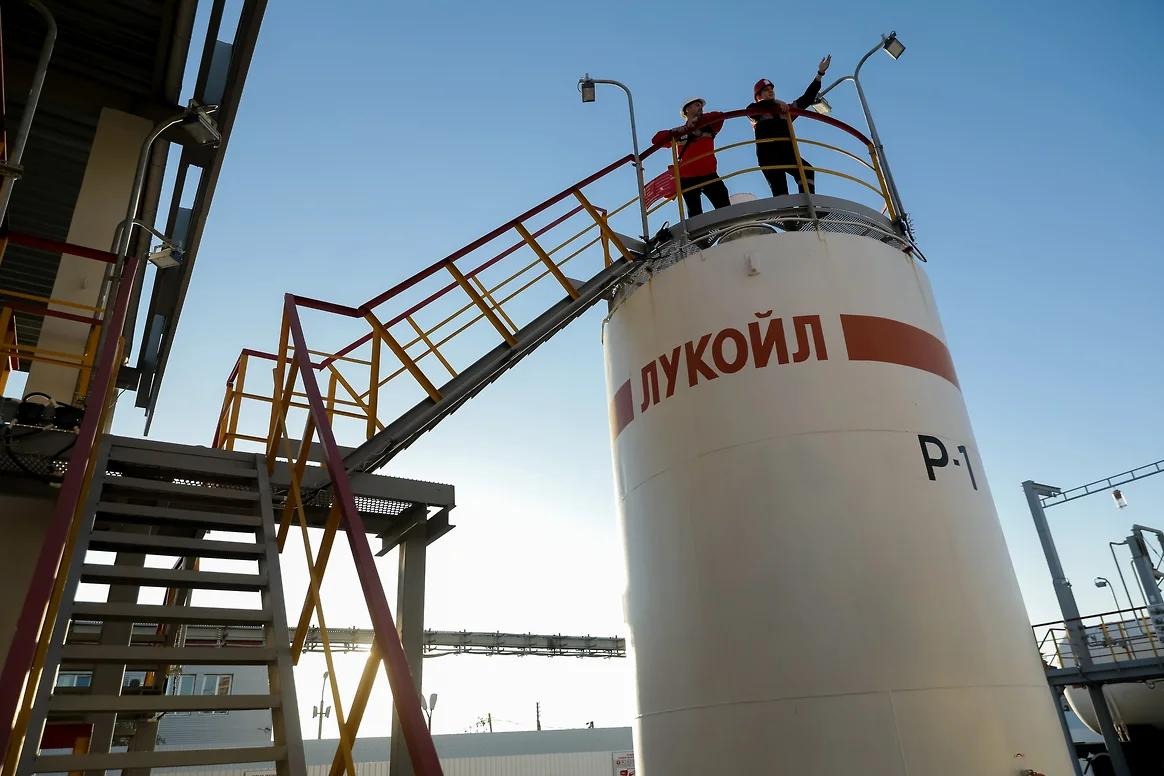ETHNIC RUSSIANS IN THE NORTH CAUCASUS FACE DECISION TO EMIGRATE
ETHNIC RUSSIANS IN THE NORTH CAUCASUS FACE DECISION TO EMIGRATE
“The exodus of the ethnic Russians is creating a problem for the whole North Caucasus,” Russian President Vladimir Putin told a group of Cossack atamans (chieftains) during a meeting in Rostov-on-Don, the capital of southern Russia. “The exodus of the Russians means a loss of a qualified labor force, and, what is worse, the art of living together is getting lost, too. While living together, both nations formed a viable community as the Russian Federation,” he added.
Putin also spoke favorably about the government policy to encourage ethnic Russians to return to the region. “Certainly, essential efforts should be taken on the federal level to make people, no matter to what ethnic group they belong to, return to their firesides” (RIA-Novosti, May 25).
Unfortunately, the Russian authorities began to worry about the problem a bit too late. This process is almost completed, at least as far as the eastern part of the North Caucasus is concerned.
According to Dzhabrail Gakaev, a Russian academician, from the year 1989 to 2002 the Russian population in the Caucasus reduced to 30%, which means by 13 times in Chechnya, by 6.5 times in Ingushetia, and 1.5 times in Dagestan (Komsomolskya pravda, November 18, 2003). According to official statistics, more than 300,000 Russians have left the Caucasus over the last 10 years. Some 260,000 have left Chechnya and Ingushetia, and another 34,000 from Dagestan, North Ossetia, Kabardino-Balkaria, and Karachaevo-Cherkessia combined. (Radio Liberty, June 23, 2002). Up to 30,000 Russians left the region in 2004 alone (strana.ru, May 31).
The Russian exodus has changed the ethnic composition of the region. Not many Russians now live in Chechnya, which had the biggest Russian population in the Caucasus in Soviet days. In Ingushetia, settlements such as Troitskaya and Ordzhonikidzavskaya (Slepttsovskaya), historically were inhabited by Russian Cossacks. Only the Ingush live there now.
Russians are leaving even Adygeya, the only Caucasian regions where they are still in majority. At least 30% of the Russian population left Adygeya in recent years (RIA-Novosti, May 31). Most of them are moving to the Russian-dominated regions of the North Caucasus, such as Krasnodar krai and Stavropol krai; they do not have enough money to go nearer the Russian heartland.
The Russian exodus has a variety of causes. After the collapse of the Soviet Union, the Caucasus became the most volatile portion of the Russian Federation. The Chechen Republic proclaimed full independence and two wars ensued. In Dagestan, different ethnic groups started a brutal struggle for power that was rife with criminal violence. In the other regions, clan and family ties began to play a decisive role in politics and in businesses. The Russians were not prepared for such shifting circumstance, and they began to lose ground. In Adygeya, where two-thirds of the population is Russian, ethnic Russians control only 15% of the seats in the local parliament (Radio Liberty, June 23, 2002).
Most of the Russians worked in factories that were closed due to economic reforms, leaving them with no income. According to Yuri Bessonov, the chairman of an ethnic-Russian organization in North Ossetia, more than 20 factories were closed in the republic after 1991 (Radio Liberty, June 23, 2002). Being out of work, the Russians quickly became marginalized. The older people retreated from public life, while younger generations left the region for good.
Local authorities did try to stem the tide. Dagestan established a Special Commission on the Russian Issue. The Dagestani government issued a decree limiting all real property deals with Russians. Every time a Russian wanted to sell his property, he had to file a special notification to prove that he was not doing so against his will (Radio Liberty, June 23, 2002). This type of decree was needed to protect Russians from criminal gangs trying to grab land and houses, the most valuable property in the unstable region. As Russians did not belong to any local clans, they became easy prey.
However, such measures taken to make Russians feel more comfortable in the Caucasus have proved to be inefficient. The only alternative to migration that Russians have is to behave like the aboriginal population, that is, to create their own clans.
In Kizlyar, a town in northern Dagestan, the Russian community managed to propel their leaders into power. Vyacheslav Palamarchuk, an ethnic Russian, became mayor of the city, and Nikolai Eremeev was elected head of Kizlyar district. This year Vyacheslav Burov won the elections and became the new district head. Although Burov is an ethnic Russian, he reportedly is supported by Saigyd Murtazaliev, a leader among local Avars (the biggest ethnic group in Dagestan). His victory provoked strong protests from Eremeev supporters, who were also backed by Palamarchuk. Ultimately the two conflicting sides agreed to divide Kizlyar district into different areas. In some of them only Avars could be elected, and in others, only Russians. Thus the Russians managed to get their share of power in ethnically divided Dagestan (regnum.ru, May 20).
There is also another, much more radical way for the Caucasian Russians to play a role: convert to Islam and join the rebels. Over the last few years, there have been some Russians accused of belonging to underground Islamist groups. One Muslim Russian, the wife of a rebel, was killed during February’s shootout in Nalchik, the capital of Kabardino-Balkaria (see EDM, February 2).
According to the Portal-credo website, which specializes in religious issues, up to 1,000 Muslim Russians could be involved in rebel activity in the Caucasus (portal-credo.ru, February 7). According to some sources, there is at least one Russian field commander among the Chechen insurgents. Abu-Malik, alias Vitaly Smirnov from the village of Kalinovskaya, is reportedly the commander of a squad active in the north of Chechnya (Kommersant, February 28).
The Russian authorities would like to go back to the Soviet times when Russian dominance in the North Caucasus was indisputable, but even the Kremlin has no power to repeat the past.


